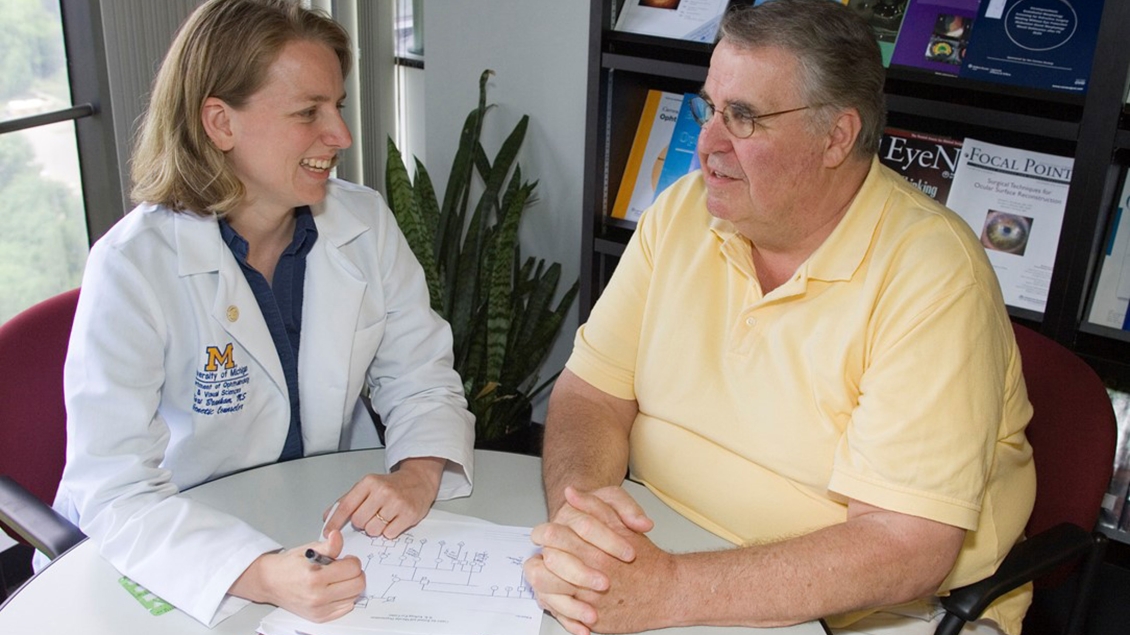
The University of Michigan Genetic Counseling Program is one of the most well-established programs in the country. Our graduates emerge as well-rounded genetic counselors who are prepared for careers in diverse positions in the ever-evolving field of clinical genetics.
The Genetic Counseling Master's Program is responsive to the interests and unique needs of individual students. Our integrated curriculum spans 21 months of closely mentored full-time study including classroom learning, extensive clinical training, a research thesis, and professional development activities.
The program takes advantage of resources within Rackham Graduate School, U-M Medical School, multiple clinical departments, and other schools on our campus including the School of Public Health and the School of Social Work.
Our vision is to train genetic counselors who can meet the current challenges and to help shape the future of genetic counseling and genomic medicine.
Our mission is to provide an individualized, integrated, and supportive graduate training environment comprised of:
- A comprehensive and rigorous academic curriculum.
- Diverse clinical experiences in a wide variety of settings.
- A broad spectrum of research opportunities that supports the development of genetic counseling scholars.
The U-M Medical School Master’s in Genetic Counseling program is accredited by the Accreditation Council for Genetic Counseling (ACGC), located at 7918 Jones Branch Drive, Suite 300, McLean, VA 22102 USA, web address www.gceducation.org. ACGC can be reached by phone at 913.222.8668.
- ABGC Board Pass Rate: Our graduates enjoy fantastic success on the ABGC Board Examinations (the national certification exam). The cumulative pass rate for 1st time test takers in the past three years (Classes of 2021, 2022, and 2023) is 84% and for the past five years (Classes of 2019, 2020, 2021, 2022, and 2023) is 91%.
- Employment: The job placement in a genetic counseling or related position is 96% within 3 months of graduation (Classes of 2022, 2023, and 2024).
- Graduation Rate: We provide a highly supportive educational environment. For the three most recent classes of students (Classes of 2022, 2023, and 2024), there has been 100% graduation rate with no attrition.
Our community includes program leadership, students, clinical supervisors, classroom instructors, research mentors, support staff, and alumni. We draw on expertise from the U-M Medical School, as well as external colleagues and partners to provide varied, rich opportunities for learning and mentorship.
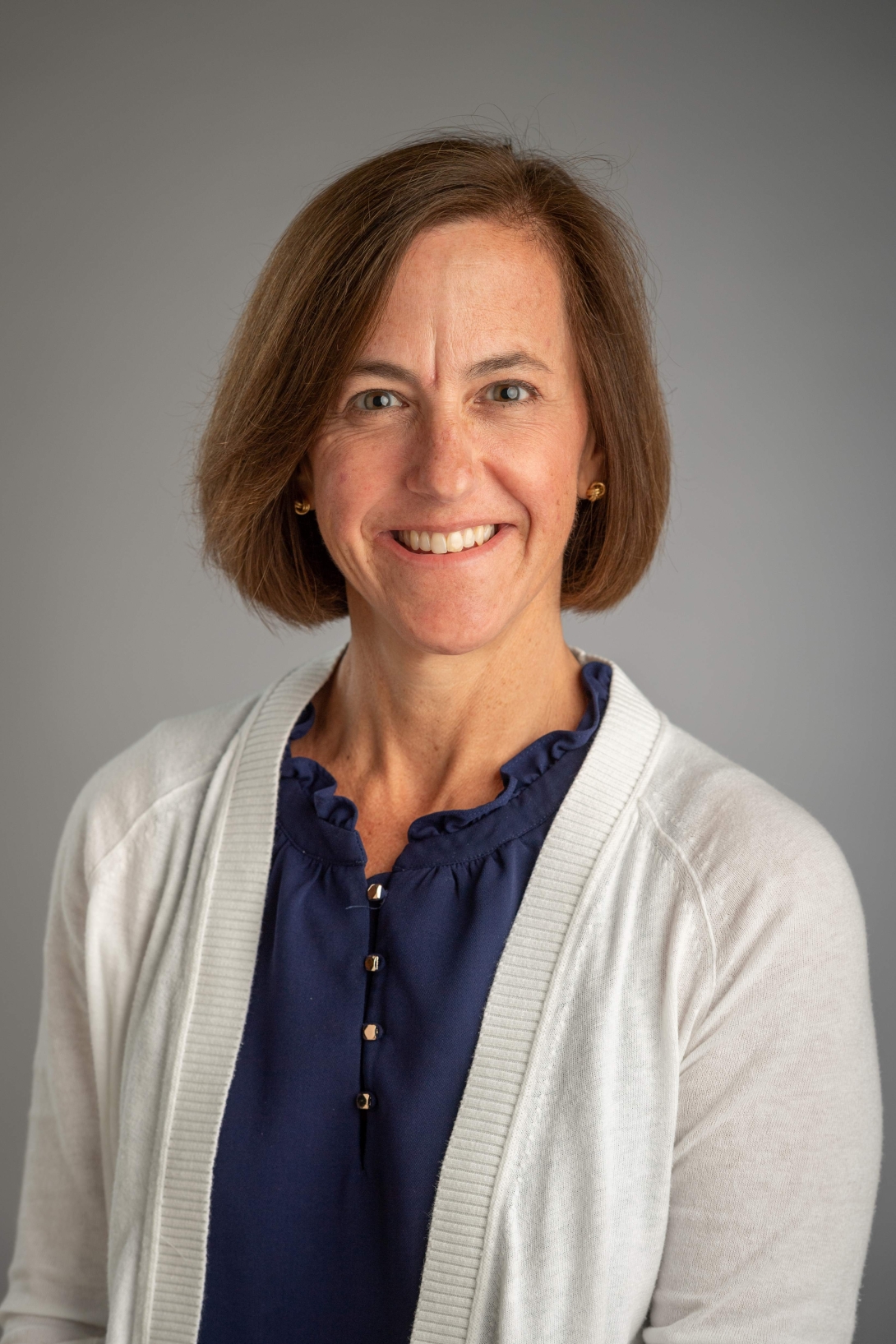
Genetic Counseling Program
Clinical Professor of Human Genetics
Clinical Professor of Internal Medicine
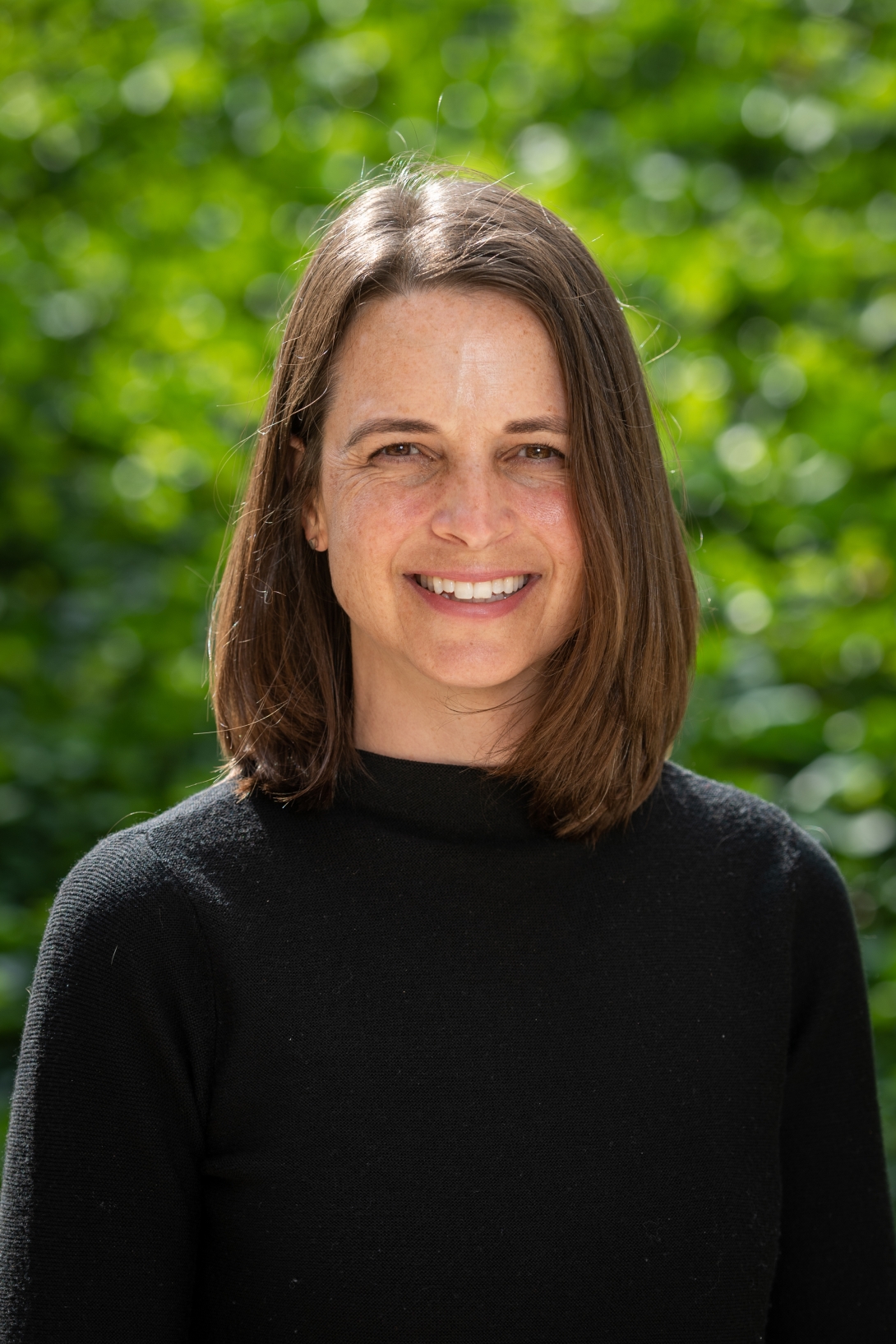
Program Associate, Human Genetics
Clinical Assistant Professor of Neurology
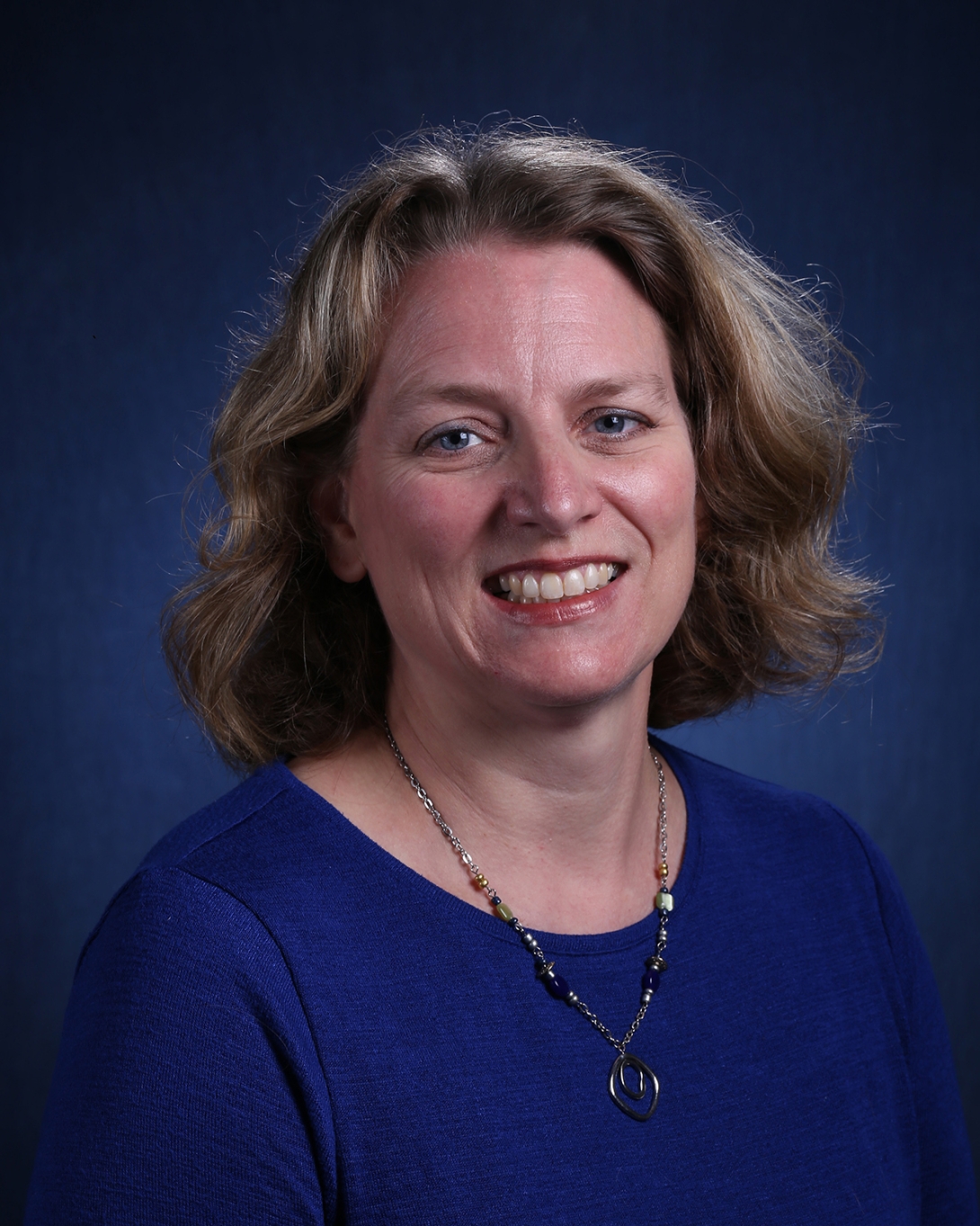
Clinical Associate Professor of Human Genetics and Program Assistant
Human Genetics
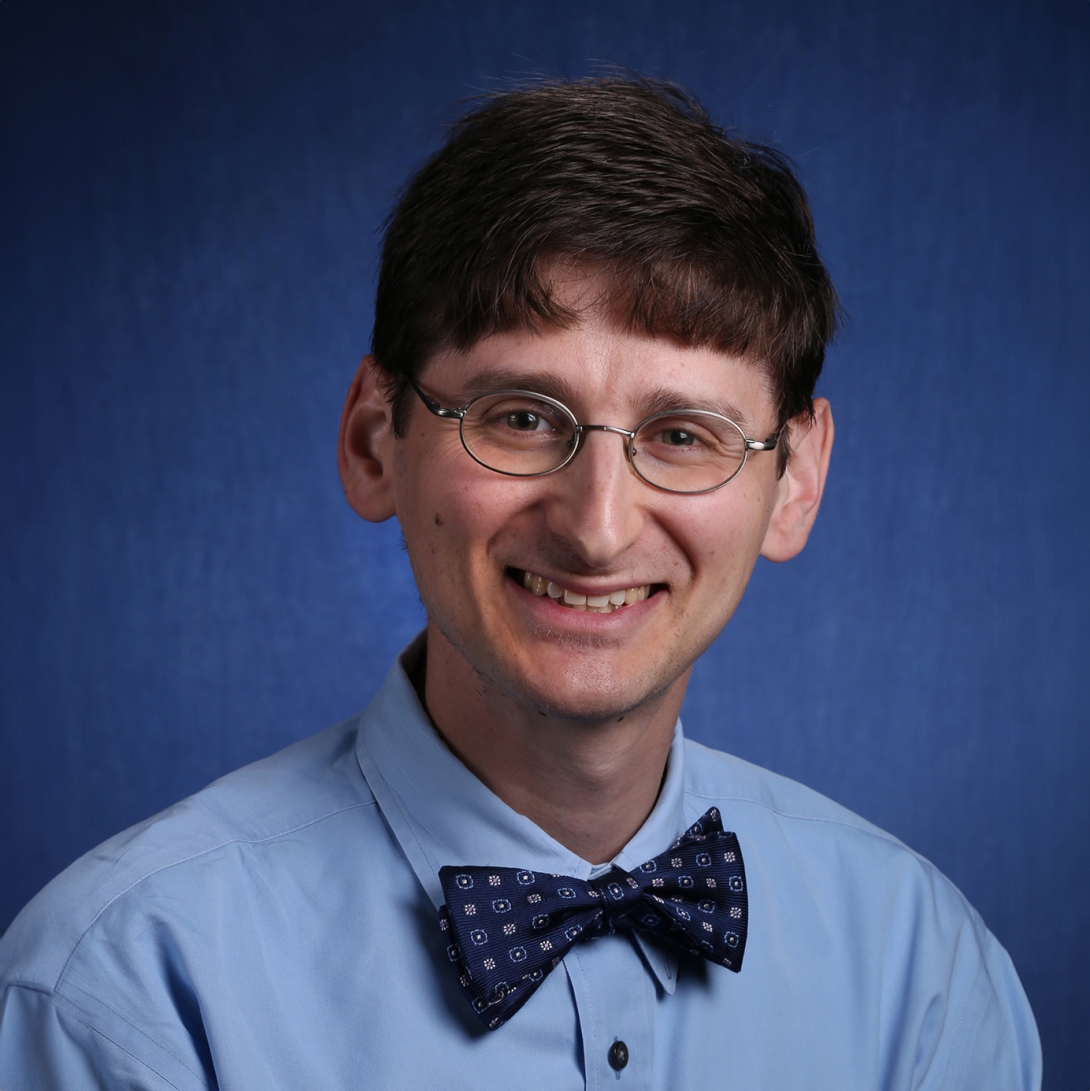
Assistant Professor of Human Genetics
- Rajani Aatre, CGC
Genetic Counselor: Cardiovascular Medicine - Patricia Arscott, CGC
Genetic Counselor, Cardiovascular Genetics - Sarah Austin, CGC
Genetic Counselor: Cancer Genetics - Adelyn Beil, CGC
Genetic Counselor: Pediatric Genetics - Kari H Branham, CGC
Clinical Associate Professor/Genetic Counselor, Kellogg Eye Center - Anna Burton, CGC
Genetic Counselor: Pediatric Genetics - Colby Chase, CGC
Genetic Counselor: Medical and Cancer Genetics - Nicole Cho, CGC
Genetic Counselor: Cancer Genetics Clinic - Jenna Damon, CGC
Genetic Counselor: Medical Genetics - Rachel Fisher, CGC
Genetic Counselor, Pediatric Genetics - Lauren Frazier, CGC
Genetic Counselor: Pediatric Genetics - Marie Louise Henry, CGC
Genetic Counselor: Medical and Cancer Genetics - Lauren Hipp, CGC
Genetic Counselor, Breast & Ovarian Cancer Risk Evaluation Clinic
Genetic Counselor, Medical Genetics Clinic - Bailey Hulswit, CGC
Genetic Counselor, UM Breast & Ovarian Cancer Risk Evaluation Clinic - Jacqueline Isaac, CGC
Genetic Counselor, Fetal Diagnostic Center - Michelle Jacobs, CGC
Genetic Counselor, Cancer Genetics Clinic - Aidan Kennedy, CGC
Genetic Counselor: Cancer Genetics Clinic - Kara Milliron, CGC
Genetic Counselor, Breast and Ovarian Cancer Risk Evaluation Clinic - Lauren Mohnach, CGC
Genetic Counselor, Fetal Diagnostic Center and Disorders of Sex Development Clinic - Andrea Murad, CGC
Genetic Counselor, Cancer Genetics - Audrey Norby, CGC
Genetic Counselor, Fetal Diagnostic Center - Bridget O'Connor, CGC
Genetic Counselor, Pediatric Genetics - Jessica O'Shea, CGC
Genetic Counselor: Pediatric Genetics - Jenae Osborne, CGC
Genetic Counselor, Cancer Genetics Clinic - Kara Reynolds, CGC
Genetic Counselor, Fetal Diagnostic Center - Dana Schlegel, CGC
Genetic Counselor, Kellogg Eye Center - Wendy R Uhlmann, CGC
Genetic Counselor / Clinic Coordinator, Medical Genetics Clinic
Clinical Professor of Internal Medicine
Clinical Professor of Human Genetics
Explore the achievements and career paths of our Genetic Counseling alumni across various programs and graduating years.
Explore our GCP MS alumni list
Each year, we welcome MS students who engage in coursework, clinical internships, research, and professional development opportunities.
Read more about our accomplishments, program news, and other relevant information.
Explore our newsletters highlighting program news, student and alumni spotlights, and other relevant information.
The Genetic Counseling Program is committed to the principles of diversity, equity, inclusion, and justice. We resolve to be reflective about the impacts of history, both within our program and our profession, as we envision an improved future. We recognize that we are still a work in progress.
The Guiding Principles described below are intended to inform ongoing and future efforts to advance justice, equity, diversity, and inclusion (JEDI) within the University of Michigan Genetic Counseling Program (UMGCP). These guiding principles were informed by input solicited from current students, alumni, clinical supervisors, and classroom instructors during the fall 2022 semester. That input was then considered and consolidated through multiple, iterative discussions within the UMGCP JEDI Guiding Principles Task Force. Within the guiding principles, the University of Michigan Genetic Counseling Program (UMGCP) community refers to program leadership, students, clinical supervisors, classroom instructors, research mentors, support staff, and alumni (when serving in a role that supports the UMGCP). All individuals in the UMGCP community are expected to support these principles. Furthermore, UMGCP Leadership has a particular responsibility to understand the challenges embedded within the program and to incorporate these guiding principles in all facets of the UMGCP including the curriculum, clinical environment, research, and community. The UMGCP Leadership commits to being honest, transparent, and trustworthy in its communication and efforts.
These guiding principles are not intended to represent a plan or set of activities, but will help inform what comes next, including defining priorities and an action plan. We anticipate that these principles will evolve and are committed to listening, learning, and growing as we plan forward and consider the full scope of what justice, equity, diversity, and inclusion look like within the UMGCP.
- Diversity is essential to the genetic counseling learning community and profession. The UMGCP embraces its role and responsibility in working to diversify the profession of genetic counseling. Diversity exists across innumerable dimensions including, but not limited to, race, ethnicity, gender, gender identity, sex, sexual orientation, socioeconomic status, language, culture, national origin, citizenship, religion, age, (dis)ability status, and political perspective. A breadth of interests, experiences, and perspectives among all members of our community is valued and optimizes learning, skill development, and growth.
- Inclusion is critical to the training environment. The UMGCP believes an inclusive, respectful environment enriches the learning experience by fostering an ability for diverse perspectives to be shared. An inclusive environment is one in which unique goals and perspectives are celebrated. Community members will foster an environment where every person feels a sense of belonging such that they feel invited and safe to bring their whole self.
- Equity is fundamental for all students to have the opportunity to thrive. We recognize that students enter the UMGCP with unique backgrounds, needs, and experiences that influence all areas of their student experience. The UMGCP strives to provide students with access to appropriate resources through both universal design for learning* and individualized accommodations. We value mentorship and advocacy among our community as a means towards equity. The UMGCP recognizes that any student may face unexpected or intermittent challenges during their graduate studies and is committed to working with all students to seek appropriate support and resources.
- Accountability is vital to cultivating progress. All members of the UMGCP community have a responsibility to actively engage in personal development regarding justice, equity, diversity, and inclusion. We recognize that growth looks different for different people.
We all have a role in moving these principles forward, recognizing that those in positions of power and/or privilege have a heightened responsibility. We focus on the impact of our actions and recognize this supersedes intent. We strive to accept responsibility and learn from our errors. Mistakes are to be anticipated. We endeavor to give grace to ourselves and others. We seek and value feedback as a means to enable positive change.
*Universal design for learning refers to designing education so that it is usable by all people, to the greatest extent possible, without the need for adaptation or specialized design. “UDL aims to change the design of the environment rather than to change the learner. When environments are intentionally designed to reduce barriers, all learners can engage in rigorous, meaningful learning.”
Our Students
We value the diversity of our students as an essential dimension of excellence in education: listening to voices that may be different from our own can support positive change. Through the process of a holistic review of applicants, funding to support individuals from under-represented minorities, and a variety of outreach activities, we continue the important work of building a learning community with unique and diverse perspectives.
Moving forward, faculty, staff, and students are working together to evaluate the culture of our community, identify gaps and barriers, and build new ventures to achieve our goal of an inclusive graduate training culture.
Our Curriculum
In our classrooms, students consider the impacts of healthcare disparities, cultural humility, and the interplay between genetics, ancestry, and the social construct of race. These topics are addressed in required genetic counseling-specific courses, workshops led by Michigan Medicine’s Office of Health Equity and Inclusion, book and movie discussions, and in the genetics/genomics courses taught in our department.
Core teaching faculty are challenged to examine the content of each of their courses to identify opportunities for continued improvement. Furthermore, students take electives that allow them to explore these topics in an interdisciplinary learning environment. A sampling of relevant offerings in the School of Public Health includes Confronting and Addressing Racial/Ethnic Disparities in Healthcare, Theoretical Foundations for Understanding Psychosocial Determinants of Health and Climate, and Historical Roots of Health Inequities.
Scholarships
Many of our faculty and students are engaged in scholarly activities that relate to equity and disparities in the provision of healthcare and genetic services. Recently students have explored clinical communication about cancer in Arab American populations, the impact of interpreters on genetic counseling sessions, improving the provision of gender-affirming care to transgender/gender non-binary individuals, and the understanding of variants of uncertain significance across diverse patient populations. This work is a tangible step towards decreasing disparities in genetic services and examining our biases as providers.
Our Profession
We recognize our important role and responsibility in working to diversify the profession of genetic counseling. This includes fostering diversity within our student body and working to build a robust pipeline of diverse individuals to careers in genetics. We have a longstanding history of outreach efforts to local high schools as well as programs here at the University of Michigan. These programs work to expose students from underrepresented minorities to STEM professions.
Genetic counseling students pay tuition for four semesters of training, with no tuition during the summer clinical internships. Tuition costs per semester for the 2024–2025 academic year are approximately $14,277 for in-state students and $28,722 for out-of-state students.
We understand that the cost of graduate school is a concern for many applicants. A variety of resources are available to help our students support their educational training at Michigan.
The Genetic Counseling Program provides all students with the following support:
- Tuition stipends. Details about these stipends are provided during the interview process.
- Funding to support student travel to educational conferences.
- Funding to defray the costs associated with clinical training.
The Genetic Counseling Program provides some students with the following support:
- Funding to defray relocation expenses is generally awarded to a subset of students.
- The Neel Genetic Counseling Research Fellowship is generally awarded to a second-year student.
Other funding opportunities include:
- Graduate Student Instructor (GSI) positions-Genetic counseling students are eligible to apply for GSI positions in a variety of departments. In the past, students have taught undergraduate courses in biology, biochemistry, and biological anthropology. Compensation for GSI positions includes a tuition waiver and monthly stipend during semesters employed as a GSI. Learn more about working at U-M.
- Work-study programs and other employment. Genetic counseling students have been highly successful in securing work study positions. These positions have included working as research assistants for groups studying the genetics of colon cancer, prostate cancer and retinal disease and serving as clinical assistants to MD geneticists. For more information see the Office of Student Employment.
- More specific fellowships are listed at the Fellowships office of the Rackham Graduate School and the Center for Education for Women.
- Loans – federal, regional, state and local.
To be considered for all possible forms of aid for which you may qualify, a Free Application for Federal Student Aid (FAFSA) form must be completed by March 31. When filling out your FAFSA, please make sure to add school code 002325 to your list of schools. DO NOT ADD THE MEDICAL SCHOOL. Contact the Financial Aid Office for more information about the FAFSA application.
Rackham Fee Waivers: In certain circumstances, applicants may be eligible for an application fee waiver administered by Rackham. For more information visit the Rackham website.
The Genetic Counselor Educators Association (GCEA) offers a limited number of waivers for the $100 USD registration fee for the 2025 GC Admissions Match. For more information visit the 2025 Genetic Counseling Admission Match.
Learn more about how to provide current and future Human Genetics graduate students with an educational experience like no other.

We create a supportive environment that enhances creativity, collaboration, productivity and personal satisfaction.

We find a new reason to love Ann Arbor nearly every day — year-round outdoor activities, cultural experiences, a growing food scene, and a welcoming, family-friendly atmosphere are just a few that come to mind.